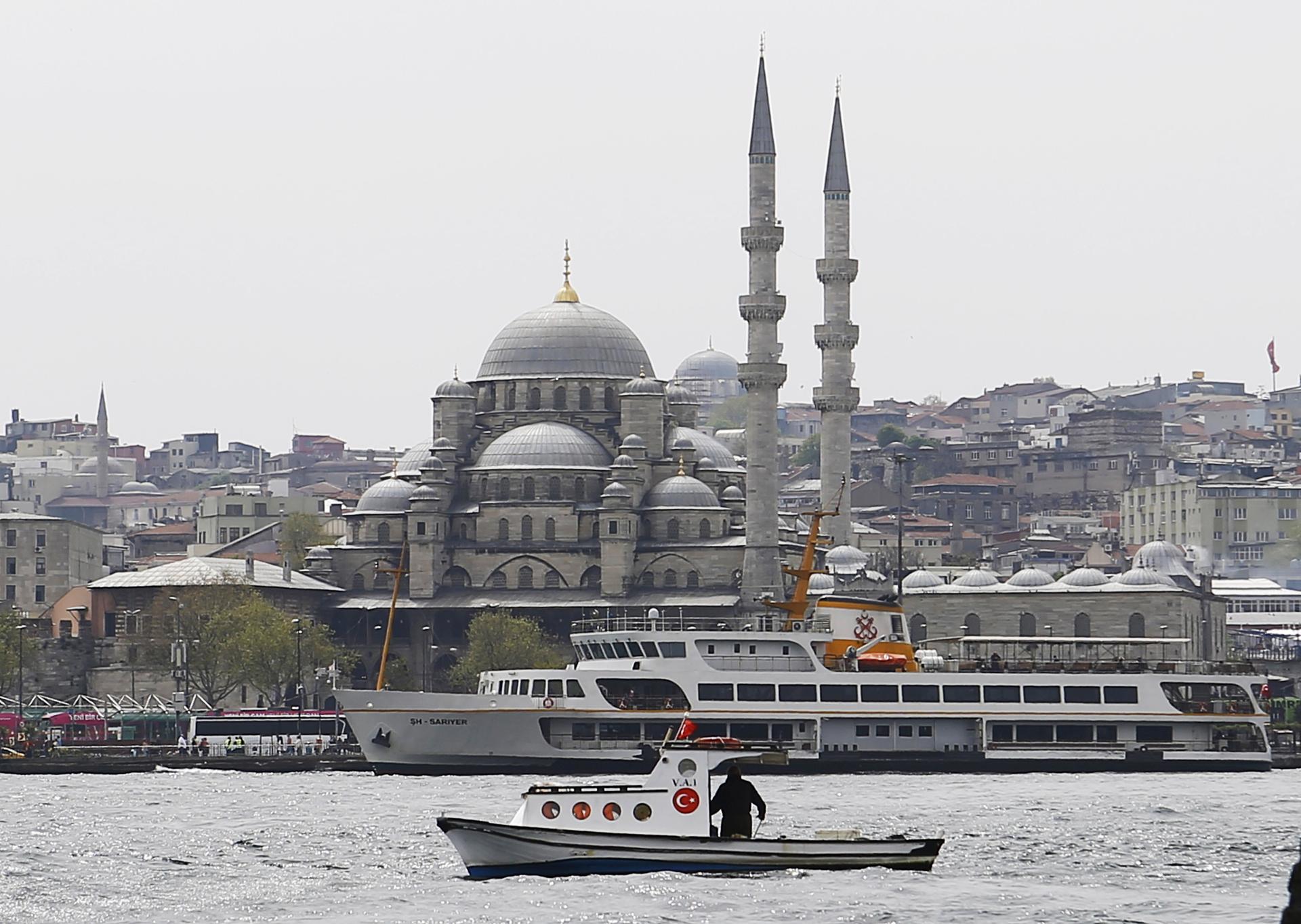Turkey’s tourism is only going downhill from here
A fishing boat sails in the Golden Horn with the 17th-century Yeni Cami mosque in the background in Istanbul, Turkey.
The horrific terror attack on Istanbul’s Ataturk Airport on Tuesday evening, which killed over 40 people and injured hundreds more, was designed to destroy lives and spread fear.
But the perpetrators were probably aware of an additional sort of pain their rampage would inflict.
The tourism industry in Turkey accounts for 12 percent of its GDP, pulling in about $96 billion in 2014. That year, 37 million tourists visited the country. Millions of jobs depend on it.
But those livelihoods are now under serious threat as terrorist attacks continue to convulse the country.
"We have seen fewer people recently. The recent attacks have scared them. We have noticed conferences being canceled and sometimes people just call us and tell us it's not worth risking," said an employee at Radisson Blu Hotel in downtown Istanbul.
"It's sad, because it is a beautiful city and most of it is not affected."
Since July last year, there have been eight major terrorist attacks in Turkey, killing hundreds of civilians. This period of insecurity is the result of the country's two-pronged conflict. The government is fighting against ISIS, on the one hand, and the Kurdistan Workers' Party, or PKK, and its sympathizers, on the other.
Turkey, a NATO member that aspires to join the European Union, has struggled to isolate itself from the carnage in neighboring Syria. For years, jihadists from around the world were able to cross the porous border to join ISIS. As the government takes a more pro-active approach in battling the militant group, joining coalition airstrikes against them and sealing its border, ISIS has increased terror attacks in Turkey.
Then there's the PKK, which is fighting for greater Kurdish autonomy and rights. Turkey and allies like the EU and the US consider the group a terrorist organization.
Peace talks between the Turkish government and the PKK broke down last year, and fighting in the Kurdish majority southeast has exploded. The PKK has carried out regular attacks on police and army targets. And a group called the Kurdish Freedom Falcons that's sympathetic to the PKK, has attacked civilian targets.
No group has claimed Tuesday’s attack, but authorities suspect ISIS was behind it. Ataturk International Airport is a regional hub: Almost 62 million passengers passed through it last year, making it the 11th busiest airport in the world. It is also one of the strictest in terms of security. Unlike most airports, passengers are required to pass through screenings as they enter the building, and again after they pass through passport control. All indications suggest airport security forces did their jobs brilliantly, saving many lives in the process. All of this serves to underline that even the most secure targets can be exploited by terrorists.
Istanbul is a favorite for tourists who come from all over the world for its historical sites, breathtaking views and grand bazaars. It's been hit by terror attacks three times this year. In December 2015, Istanbul's other airport was struck by a bomb attack claimed by the TAK.
These attacks have had a cumulative effect. The number of tourists visiting Turkey dropped by more than a third in May compared to the same time last year, according to the Tourism Ministry. Turkey's Hurriyet Daily News called it “the steepest decline since the 1990s,” when the country's war with Kurdish separatists was at its peak.
It hasn't helped that the home nations of potential travelers, like the US, Israel and EU countries, have issued some pretty serious travel warnings for Turkey.
But insecurity isn’t the only thing keeping people away.
Turkey’s diplomatic spat with Russia, which erupted when the NATO nation shot down a Russian jet it said had violated its border, has led to a massive reduction in Russian tourists. According to Hurriyet, the number of Russians visiting Turkey dropped by 92 percent in May, compared to last year.
That's true of tourism from Israel, too. Turkey was a prime destination for Israeli travelers until ties were ruptured by an Israeli commando raid on a Turkish aid ship that was attempting to deliver aid to Gaza in 2010.
Turkey's leaders recently announced the country repaired ties with Israel and Russia. Just hours before the attacks on Ataturk Airport, Turkish Prime Minister Binali Yildirim said “one of the positively affected areas of our improving ties with both Russia and Israel will be seen in the tourism sector.”
Those hopes were extinguished on Tuesday, along with the lives of dozens of innocent people.
Turkey faces enormous security challenges. As ISIS loses territory in Syria and Iraq, it has turned more frequently to terror attacks against civilians abroad — the attacks in Paris and Belgium among them. Experts say that the group has established deep-rooted networks inside Turkey. As its self-described caliphate continues to shrink, it is likely to lash out even more.
Every day, reporters and producers at The World are hard at work bringing you human-centered news from across the globe. But we can’t do it without you. We need your support to ensure we can continue this work for another year.
Make a gift today, and you’ll help us unlock a matching gift of $67,000!
